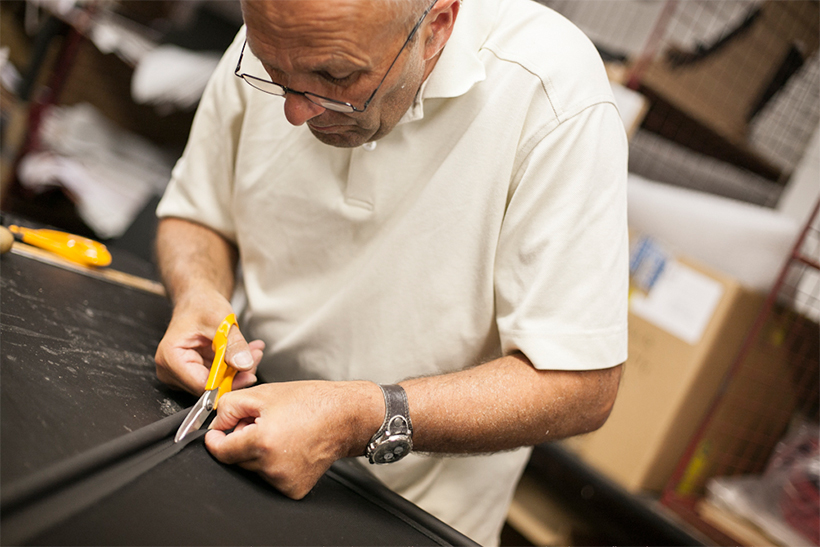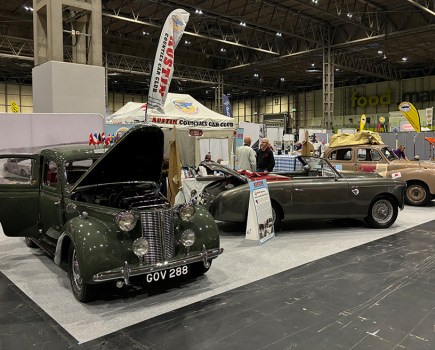A Suffolk-based business is doing its bit to buck a worrying trend that has seen skills vital to the classic car industry being lost. By making the most of the experience currently available in the sector and passing it on to a new generation, interior trim specialist Newton Commercial is looking to safeguard disappearing techniques.
Although the classic car scene is getting bigger, paradoxically there’s a shortage in the skills needed to support it. In 2016, the Federation of British Historic Vehicle Clubs (FBHVC) commissioned the National Historic Vehicle Survey, which, among other things, revealed the worries of incumbent industry members. 80 per cent of traders and specialists surveyed at the time worried that not enough was being done to service the needs of a growing industry.
Beyond basic servicing needs, keeping a classic happy requires knowledge passed on from previous generations, whether that’s veneering, chrome plating, body restoration or, in Newton Commercial’s case, interior trimming. Whilst strides have been made by initiatives like the FBHVC’s Heritage Vehicle Apprenticeship, as an ageing workforce reaches retirement it often doesn’t have an opportunity to pass on its skills to new recruits.
As a manufacturer of replacement trim for mainly British and European classic cars, Newton Commercial is keen to ensure that doesn’t happen. In the firm’s 39 years it’s developed plenty of experience, but hasn’t stopped looking for more to join its workforce of more than 50 people.
“We’ve just employed an experienced 60-year-old trimmer. He didn’t want to stop working,” said managing director Jonny Newton. “His skills are fantastic because they’ve been honed over many years of making furniture upholstery, which are very transferable.
“I’m currently looking for sewing machinists, and the team have put together a whole list of people we can contact, from car restorers to sewing schools, and the WI to community centres. We want to find people and utilise their skills.
“It’s getting hard to find people as a lot of them retire and take those skills with them. We are spending time trying to get as much information as we can down into what we call bibles and spec sheets, so we can train a younger team and ensure the industry can flourish for the next 20 years and beyond. ”
Indeed, the firm’s range of ages stretch from 18 to 75, with two 18-year-old girls about to complete the first year of their apprenticeships. The apprentice scheme began in 2011, and of the six involved in the first run, four are still working for the business.
The company will be looking for new recruits in the autumn, and though full government funding is only provided for under-18s, older applicants will be welcomed, whether as traditional employees or as part of the scheme.
Successful apprentices will receive a qualification at the end of the process, and they won’t just be trained in traditional methods; Newton Commercial also uses modern techniques including CNC-cutting, so not only will vital skills be preserved, newer and improved methods can be learned too. In an ever-changing and growing classic car industry, that can only be a good thing.








